First of Five New Patrol Boats Delivered to the Norwegian Police
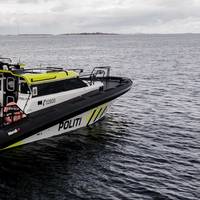
Swedish builder Marell Boats recently delivered the first in a series of five new Marell M12 RIB patrol boats for the Norwegian Police.The multipurpose fast patrolling and interceptor vessels will be delivered through the first quarter 2023, entering operations at five different locations along the coastline in southern Norway.The medium-sized, aluminum-hulled patrol boats will be used for patrolling and assignments such as surveillance, search and rescue, boarding and control of recreational boats.
Norwegian Police Order Five Patrol Boats from Marell
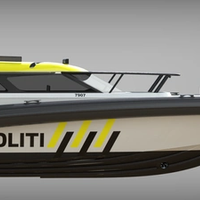
Swedish builder Marell Boats informs it has been awarded a new contract to supply five fast patrolling and interceptor vessels to the Norwegian Police. The five new M12 RIBs will be delivered during from the third quarter this year through the first quarter 2023, to five different locations in south of Norway.The medium-sized patrol boats will be used by the Norwegian Police for patrolling and assignments such as surveillance, search and rescue, boarding and control of recreational boats. It will also be used as a training platform of police personnel in boat handling and navigation.
Autonomous Shipping – Cyber Hazards Ahead
![A look at the typical areas most frequently seen as the scene of common accidents on board workboats. (source: European Maritime Safety Agency [EMSA])](https://images.marinelink.com/images/maritime/w200h200c/a-look-at-the-typical-105797.jpg)
If autonomous vessels are the future of maritime shipping, then cyber threats may be its Achilles heel. Congested shipping, restricted visibility, limited maneuverability, and intensive docking activities all contribute to port hazards – 42 percent of EU reported marine accidents (injury/death/damage to ships) took place in port areas and 44 percent of workboat fatalities occurred on Tugs. Autonomous shipping should provide numerous benefits including increased safety by relieving crewmembers of unsafe and repetitious tasks.
Abu Dhabi Ports Signs a 30-year Deal with MSC to Build Terminal
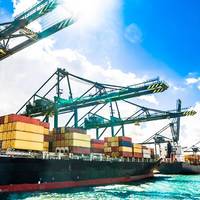
Abu Dhabi Ports has signed a 30-year concession agreement with Mediterranean Shipping Company (MSC) to build a new container terminal at its Khalifa Port.Abu Dhabi, the capital of the United Arab Emirates (UAE), has spent billions developing the port, which opened in 2012, as part of ongoing efforts to diversify its oil-rich economy.Khalifa Port is on a man-made island roughly half-way between the centres of Abu Dhabi and Dubai, and about 60 kilometres (37 miles) south from Dubai’s huge Jebel Ali port.Construction of the new terminal will include deepening berths to make Khalifa Port capable o
GE Completes HAZID Meetings for World’s First LPG-Fueled Ferry
GE’s Marine Solutions reports that the world’s first Liquid Propane Gas (LPG)-fueled ferry design to use GE’s COmbined Gas turbine Electric and Steam (COGES) system has successfully completed Hazard Identification (HAZID) meetings. The consortium of Youngsung Global, DINTEC, Korea LPG Industry Association, GE’s Marine Solutions and Far East Ship Design & Engineering Co. (FESDEC) signed a multilateral memorandum of understanding in November 2016 to cooperate on this unique ferry design. “Bureau Veritas, a world-leading classification society with a large and recognized expertise and experience in gas fueled ships, chaired the HAZID meetings. All consortium members were represented as well as SK Gas and E1 who are members of the Korea LPG Industry Association.
Industry 4.0 on the High Seas
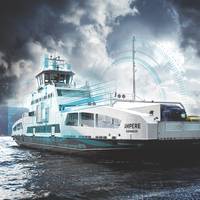
Werner von Siemens’ mission to lay 50,000 nautical miles of transatlantic cables might not have been destined to fail – but at least one business rival tried to make sure that it would. It wasn’t enough to merely execute a risky project that had never been done before. The crew aboard the Faraday, the ship that Siemens and his brothers commissioned, also had to move faster than saboteurs who planted false reports in the press and even broke cables. And it was in this pressure…
Ambrey Risk Acquires Drum Cussac Security Unit
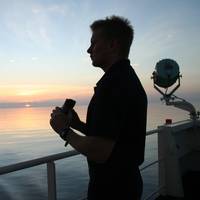
Drum Cussac and Ambrey Risk have agreed the sale and purchase of Drum Cussac’s maritime transits security division. Drum Cussac’s transits security division provides security consultants in all marine environments to protect commercial shipping from seaborne piracy threats, predominantly in the Lloyds of London High Risk Area (HRA) of the Indian Ocean. Drum Cussac has provided this service to a large number of clients since 2008. Ambrey Risk will integrate Drum Cussac’s maritime transits operations staff and equipment into its existing business.
Is Your Crew Really Prepared?

If you think training is expensive; try ignorance. In the ensuing years following the Exxon Valdez disaster, the maritime industry has made great strides in training mariners to prepare for, respond to and mitigate a multitude of emergencies aboard vessels. For example, the environmental performance of the marine industry itself has all but eliminated much of the oil that formerly entered the water through marine error or equipment failures. Nevertheless, the incidents with vessels that do occur, large and small, bring into question the effectiveness of the training.
Corvus Energy Joins Aquarius Project
Fukuoka, Japan's Eco Marine Power Co. Ltd. announced that Corvus Energy will supply the energy storage component for its patent-pending Aquarius Wind and Solar Power System for ocean-going ships. Since 2010, Eco Marine Power has worked on developing an advanced integrated system of rigid, photovoltaic-equipped sails and energy storage modules to allow ocean-going ships to harness renewable energies and reduce their need for oil. The rigid sails are used for propulsion and are covered in solar panels to capture solar energy. Corvus Energy’s lithium-polymer battery technology will store energy collected by the array of wind and solar panels. The batteries will then be used to power the ship’s operational equipment or, alternatively, be used as a power source when at harbor or at anchor.









